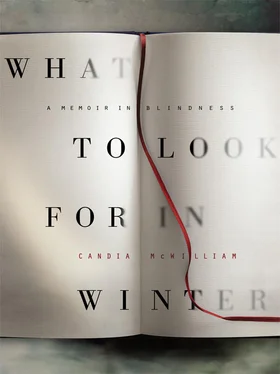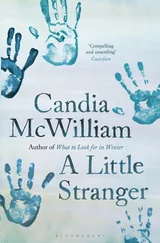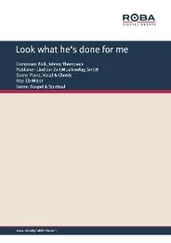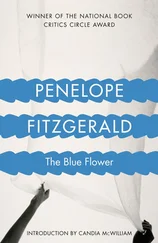My father-in-law read the Dawn , Karachi’s newspaper, daily, and looked, as he always did, at the stock-market prices. In the evening he was reading Flaubert’s letters on a small upright sofa in the drawing room. The routines of daily life were congenial, airy and natural between each of us, I believed, at the time.
One night, because we were young, Fram, his sister Avi and I and their cousins were invited to a beach party. Many aspects of it were curious. The young women whom I had met as Parsi wives and daughters, ravishing in the modesty of their garments and the flat shine of their Indian-set jewels and pearls, had changed, since it was night-time and no one but their husbands would see them, into western beachwear or into some designer’s idea of western beachwear. Many of these couples, after all, had houses in New York too. We were driven along the spit out into the Arabian Sea where I doubt that anyone much keeps a beach house any longer, but in those days it was like a more expansive Southwold. The servants settled to making the barbecue and the wives to comparing their outfits. How much lovelier, actually, they had looked before. Nonetheless their husbands seemed pleased to see their wives turned out so with their crazy sunglasses — although it was pitch black outside — and marvellous sarongs covered with logos. Even the jewellery had changed and become the faceted hard jewellery of the West.
Yet perhaps they were right to be so strangely attired and that only for the cover of night, for it was to prove to be a night of nights, the night when the turtles know to emerge from the edge of the sea and un-dig from the sand the clutches of leathery eggs they have left there.
So there we were, all of us quite young, and everyone apart from Avi, Fram, their cousins and myself, dressed for a blazing day in Portofino, when out of the sea came lumbering animals large enough to ride on yet made almost completely of horn and leather, tanks on the sand, ballerinas in the water. Then it began. Hundreds and thousands of perfect models of their mother, but the size of a Jaffa Cake, came scrobbling out of their nests and hurled themselves into the sea, which indifferent, hauled them in its wave further up the beach to leave them high and dry. It proved to be a whole other way in which you can’t beat the sea. We picked up handfuls of the perfect, scratchy little things and went quite deep into the sea with them, but back the waves came with their freight of bad pennies. Exhaustion killed many; it’s not surprising to learn that so few survive.
While working in our high cliff of a studio, Liv and I are receiving more visitors than we used to, because this handsome, crumbly house is about to be taken to pieces and put together again. Contractors, builders, civil engineers, architects, curtain-makers, come and go with their laser tape measures and their pickaxes. We are polite but so far haven’t offered tea. We are working too.
So if I felt that I was contingent and perching on a small ledge before, I now feel the ledge is thinning and the sea beneath me is crawling, and I must get on with this story.
When we were nineteen or so, I knew from his appearance, which is elegant and slender, and from his colour, which is a light caramel brown, that Fram was not English. I assumed that he was Indian. He is in fact Parsi. He is a Persian, descended from that group of Zoroastrians who, at the time of the Arab invasions, fled from Iran in boats and landed in Gujarat. The Parsis made a deal with the indigenous ruler, fortunately for them a Hindu, that they would neither break any of their host’s taboos nor proselytise. In return he allowed them to settle and trade, originally in a kind of palm toddy. During the time of the Raj, Parsis found a thirstier market, purveying whisky, brandy, soda water and so on to the sahibs.
Zoroastrianism seems to me, who have less than no business to opine, but a Zoroastrian son, a commendably rational way of leading a life. That son, for example, really does implement the instruction left to him by his Parsi grandmother on her deathbed, ‘Good thoughts, good words, good deeds.’ It is a religion that institutionalises charitable giving and that reminds each member of the faith that he has brought nothing into the world and will take nothing out. Each Parsi wears a thread around his or her waist called the kasti , as a warning against excess; below the normal daily shirt of even a westernised Parsi you may find a sadra , which is an almost gauze-like vest of simple white muslin to remind the wearer that, no matter his prosperity, he is the same as any other man.
It is an ancient faith and I feel shy writing anything about it. However, its importance in my life cannot be overemphasised, both for good and for, entirely unintended, harm. Perhaps the thing that most outsiders know about Parsis is that they bury their dead on Towers of Silence, leaving them there to be eaten by vultures and returned, therefore, to the cycle of life. The other thing that people know about Parsis is that they are worshippers of fire.
There is in the world a dwindling number of pure Parsis. This is not helped by people like me, who have married pure Parsis. There has come a ruling from the Parsi Panchayat, the ruling body, that the children of male Parsis born to farangi women may still be Parsi, but this is not entirely popular with ultra-orthodox believers. One may read frightening things on websites. It all returns to the cruel question of purity, an inhuman phenomenon that is presently igniting all flammable faiths, creeds, tribes and dictators as it has immemorially done. Purity posits the notion that we are not one another; whereas clearly, to live, we must imagine how it is to be one another. This is where fiction, though it is not a utilitarian art, or anything so simple, cannot but come in. We need urgently to know how other people feel.
The closeness and decency of the Parsi community, insofar as I have ever encountered it, comes as refreshment to the soul. There are fewer than 100,000 Parsis in the world. Zoroastrians have been actively persecuted in Iran, and in India a really unexpected modern glitch has compromised their ancient burial customs. Indian vets have begun to treat ailing cattle with Voltarol, a painkiller that — if they eat one of the treated cows — attacks the liver of Indian vultures. The vulture population of, for example, Bombay, has dropped by ninety per cent, which presents a public health hazard and portends disaster — or change — to the Parsi community as it holds up the liberation of the soul and the rejoining of the body to the creation.
In fact for the last two generations, Fram’s immediate family have been buried in the Protestant Cemetery in Rome. I am glad of this in some cowardly ways. The thought of my shrouded husband or my son in his cerements being loaded on to an aeroplane to be taken to the Towers of Silence, where women may not enter, is a lonely one. Lonely for them, I mean.
So how does this relate to Rycote Chapel, with its stars cut out of contraband playing cards on the ceiling? I had always known that Fram was clever and could be exceedingly cutting. What I had not expected was a complete unevasive answering of every question I had asked or even thought to ask. I think that I knew I loved him when he referred with exotic normality to Marks and Spencer as ‘Marks’.
I thought, here is someone with a perfect ear for seventeenth-century poetry, here is someone who never misses a trick, here is someone of whom I was afraid because I know his tongue has blades, and yet he is still, despite all his schooling and conditioning, that tiny bit unassimilated. All children brought up between cultures become felinely bilingual, trilingual, whatever it takes. Fram had in his time acquired illiterate smatterings of Urdu and Gujarati; more Latin, less Greek; French and Italian. His English modifies according to with whom he is speaking, so that when on the telephone to his parents, whose English was the hyper-English of let us say, the Third Programme in the 1960s, you would hear that note leaking into his own tone. When he is with his sister, they speak English at one another like birds. When he is teaching or giving a lecture he speaks naturally in a pure Latinate English and in paragraphs. I love his clarity. When we talk, I wave the butterfly net; he does the pinning.
Читать дальше











